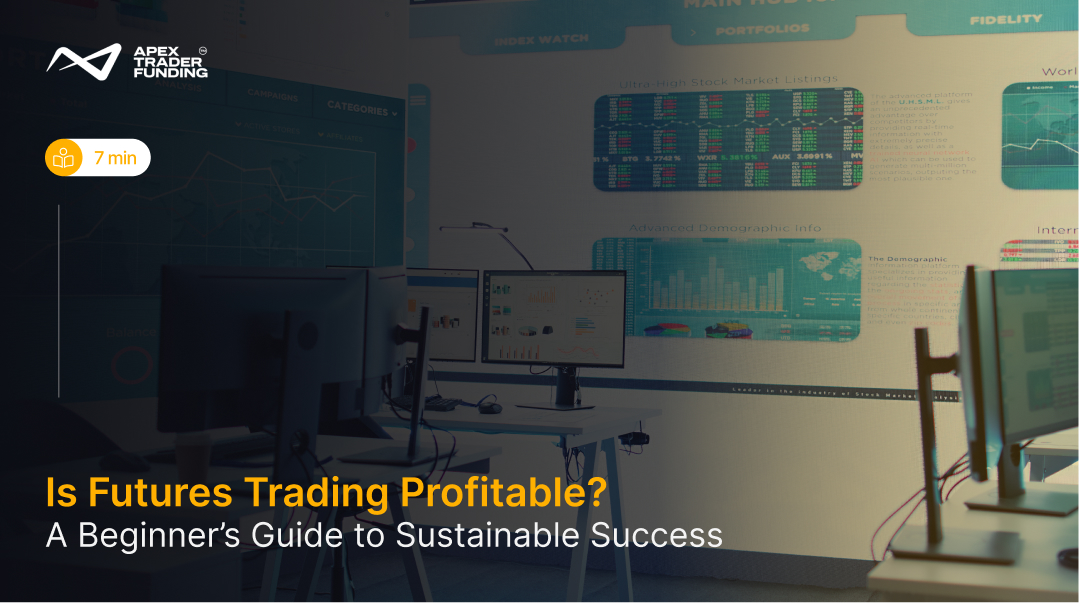
trading-education | 30-09-25
Futures trading is one of the most dynamic segments of financial markets. For decades, professional institutions, hedge funds, and independent traders have used futures to manage risk and speculate on market movements. The core question many beginners ask is simple: Is futures trading profitable? The answer is nuanced — it can be highly profitable, but only when approached with education, discipline, and strategy.
Is Futures Trading Profitable?
Futures trading can be profitable, but the success rate for retail traders is approximately 1.1% to 4%. Consistent profitability in 2026 requires utilizing Micro contracts to manage leverage, adhering to a 1–2% risk-per-trade rule, and using AI-enhanced volatility filters to avoid algorithmic "whipsaws." Success depends on treating trading as a high-precision business rather than a speculative gamble.
The Role of Education in Futures Trading Profitability
One of the most overlooked factors in determining profitability is education. Practical education doesn’t always mean formal courses—it can include simulated accounts, evaluation programs, and mentorship that teach discipline in a safe environment. Using demo platforms, for example, helps beginners practice order placement, test strategies, and understand market mechanics without financial pressure.
The real value of education lies in developing habits: learning how to size positions responsibly, recognizing patterns, and controlling emotions under stress. Traders who prioritize learning discover that profitability isn’t about luck or one-time wins—it’s about applying knowledge consistently across many trades.
Understanding the Nature of Futures
Futures contracts are standardized agreements to buy or sell an asset at a set price on a future date. They cover everything from commodities like crude oil and wheat to financial instruments such as stock indexes and interest rates. Because they are leveraged instruments, traders can control large positions with relatively small amounts of margin.
This leverage amplifies both profits and losses, which is why futures trading attracts those seeking high returns but also demands strict risk control. Profitability isn’t about chasing quick wins — it’s about understanding the contract specifications, the margin requirements, and how market volatility impacts price behavior.
Profit in futures trading isn’t about predicting the market—it’s about preparing for it with discipline and consistency.
What Drives Profitability in Futures Trading?
Profit in futures doesn’t come from luck. It comes from the careful application of trading principles. Several factors determine whether a futures trader succeeds:
- Risk Management: Controlling position size, using stop-loss orders, and limiting exposure are the foundations of profitability. Without it, even strong strategies can collapse.
- Market Knowledge: Futures are tied to underlying assets. A trader must understand not just charts but also economic data, supply-demand cycles, and global events that influence prices.
- Consistency Over Time: A profitable futures trader often has more losing trades than winning ones, but the winners outweigh the losers through careful risk-reward planning.
- Adaptability: Market conditions change quickly. A strategy that works in a trending market may fail in a range-bound market. Flexibility keeps profitability sustainable.
The Role of Strategy in Futures Profitability
To stay ahead of institutional HFT (High-Frequency Trading) in 2026, profitable retail traders have shifted toward Quantitative Order Flow Analysis. This involves tracking the "tape" to see where big bank algorithms are "absorbing" liquidity.
Adaptive Trend Following: Using AI-based moving averages that recalculate based on real-time market regime shifts (e.g., switching from Trending to Mean Reverting volatility states).
Volatility Harvesting: Capturing premium when VIX spikes are followed by rapid mean reversion, typically executed via Micro Index futures.
The Micro-Scaling Edge: Using /MES (Micro S&P 500) or /MNQ (Micro Nasdaq) to build positions with a $1.25 tick value. This allows for tighter risk control and "scaling in" on small accounts—something large institutions cannot do effectively.
Each strategy carries strengths and weaknesses, and successful traders understand which conditions favor which method. Backtesting and demo trading provide essential feedback before risking real funds.
The most successful traders aren’t the ones chasing the biggest wins, but those who respect risk and let steady growth compound over time.
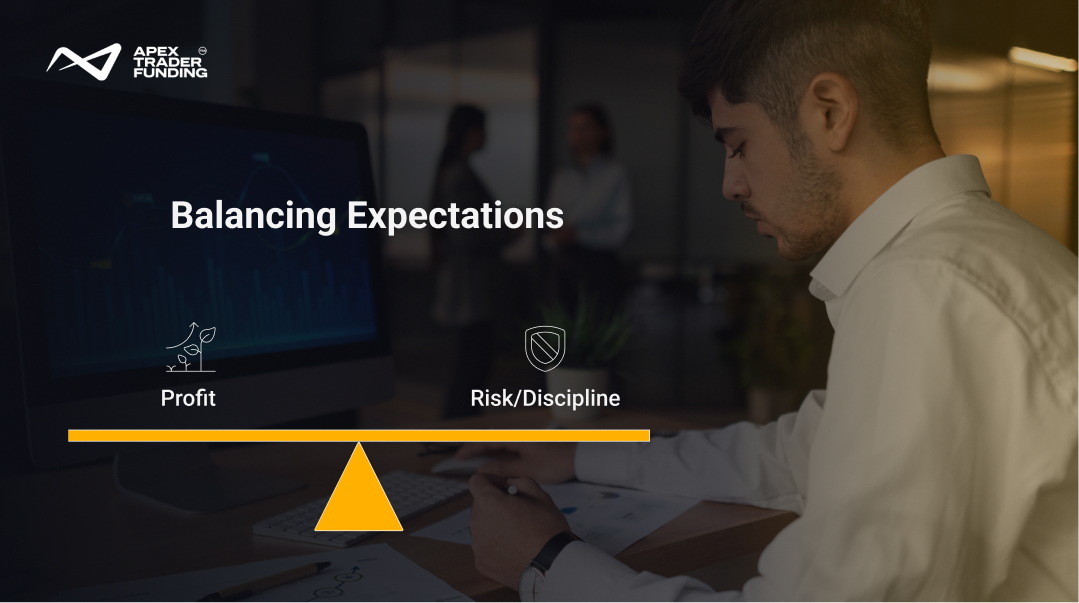
Balancing Expectations: Profit vs. Sustainability
Many beginners think futures trading is about quick wealth, but lasting profitability comes from discipline, patience, and a structured approach. The table below highlights the key differences between misconceptions and the realities of trading:
Metric | Beginner Expectation | Professional Reality (2026) | Strategic Impact |
|---|---|---|---|
Success Rate | 50% - 70% | 1% - 4% (Consistent) | Highlights the need for high-level discipline. |
Risk per Trade | 10% - 20% | 1% - 2% Max | Prevents "Account Blowouts" during drawdowns. |
Win Rate | Must be 80%+ | 40% - 55% | Proves profitability comes from Risk-Reward (RR). |
Starting Capital | $100 | $500 - $1,000 | Required for Micro-contract margin requirements. |
Final Thoughts
So, is futures trading profitable? The answer is yes — but only for those who treat it with the seriousness it deserves. Education, practice, and discipline separate the successful from those who fall victim to leverage and poor planning. For anyone considering futures, the first investment should be in knowledge and skill, not just in a trading account. Profitability comes not from the contract itself, but from how prepared the trader is to manage the risks and seize the opportunities the market provides.
Ready to put your trading skills into practice? Explore funded account options with Apex Trader Funding, or start today with a 25K Tradovate account or a 25K WealthCharts account to trade with structure and confidence.
Regulatory Notice (2026): Trading futures involves substantial risk and is not suitable for all investors. Statistics from the CFTC and global derivatives exchanges indicate that the majority of retail participants (approx. 96-99%) lose money. The use of leverage can result in losses exceeding initial deposits. Past performance is not indicative of future results.
FAQs
The 80% rule is a concept from Market Profile analysis. It states that if the market opens outside of the previous day’s value area, then moves back inside it and stays there for a short period (often about 30 minutes), there’s an 80% chance that price will travel through the entire value area. Traders use this rule to anticipate strong intraday moves and to plan trades with clearer entry and exit points. While it’s not a certainty, it’s considered a useful guideline for spotting high-probability setups.
Yes, you can exit a futures contract before it reaches its expiry date. In fact, most traders close or “square off” their positions well before expiration to avoid physical delivery or settlement. Exiting early allows traders to lock in profits, cut losses, or roll their positions into a later contract. This flexibility is one reason futures are popular with both short-term and long-term traders.
You can hold a futures trade until the contract’s expiry date, which varies depending on the product (monthly, quarterly, etc.). However, many traders close positions earlier to manage risk, secure profits, or avoid settlement. The actual holding period depends on your strategy — day traders close within the same session, swing traders may hold for days or weeks, while longer-term traders sometimes roll contracts forward to maintain exposure beyond expiry.
Related Blogs
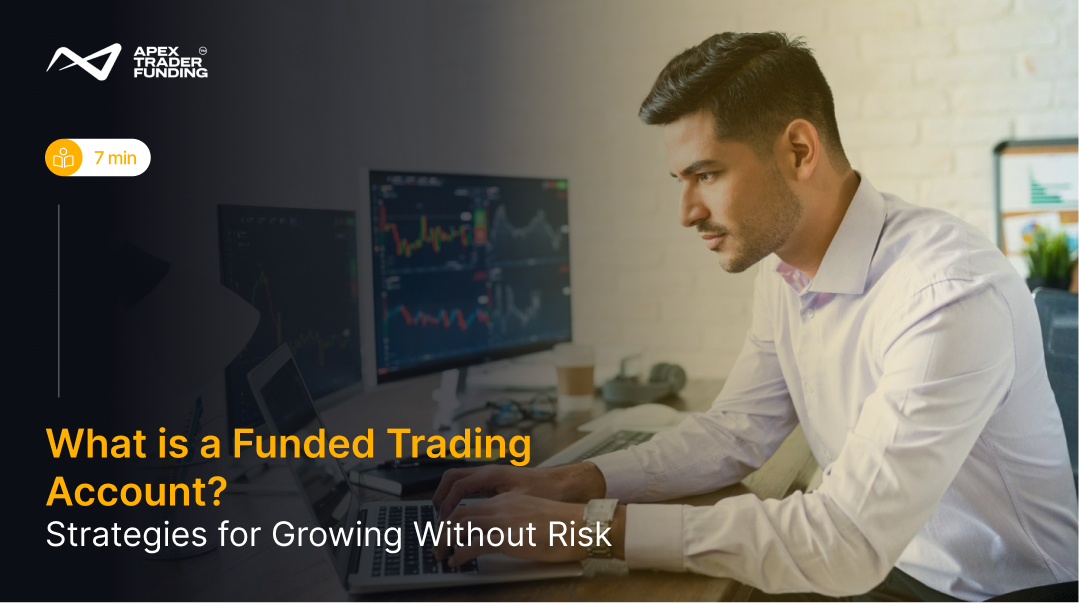
trading-education | 22-08-25
What is a Funded Trading Account? - Detailed Guide
A funded trading account is a financial arrangement where a proprietary trading firm (like Apex) provides you with virtual or...
Read more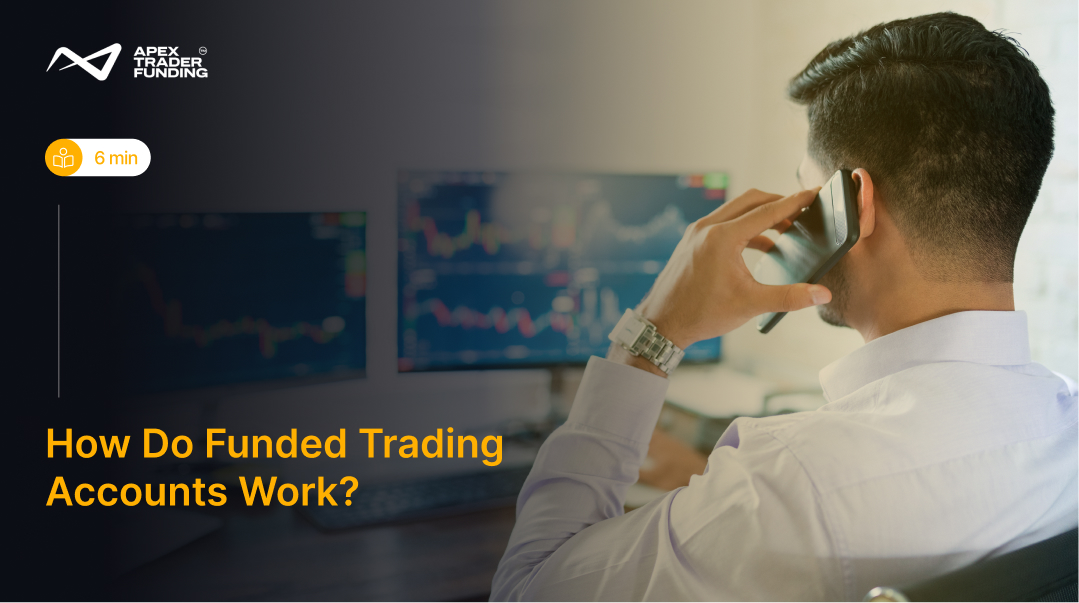
trading-education | 23-08-25
How Do Funded Trading Accounts Work?
A funded trading account works by granting a trader access to a firm's capital after they pass a simulated evaluation....
Read more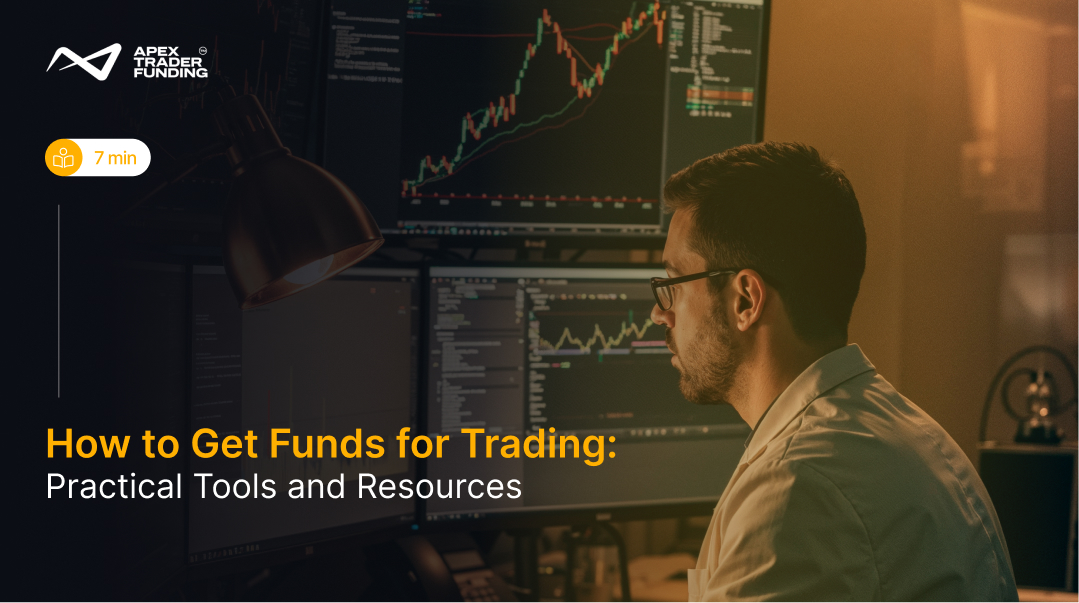
trading-education | 25-08-25
How to Get Funds for Trading? - 6 Practical Ways
Starting a trading journey often requires more than knowledge—it requires capital. Yet many aspiring traders face the same challenge: how...
Read more